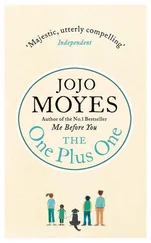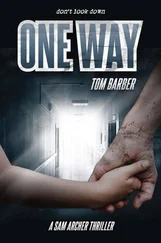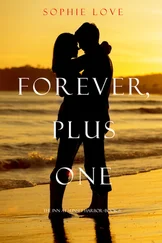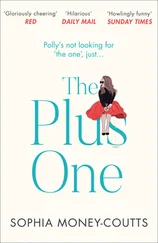“Would you like some coffee?” Carella asked.
“Is there some?”
“Sure. Miscolo!” he yelled. “Can we get two cups of joe?”
From the depths of the clerical office in the corridor, Miscolo’s voice bellowed, “Coming!”
Carella smiled at the girl and said, “What can I do for you, Miss Forrest?”
“Most everyone calls me Cindy,” she said.
“All right. Cindy.”
“So this is where you work.”
“Yes.”
“Do you like it?”
Carella looked around the room as if discovering it for the first time. He shrugged. “The office, or what I do?” he asked.
“Both.”
“The office…” He shrugged again. “I guess it’s a rat trap, but I’m used to it. The work? Yes, I enjoy it, or I wouldn’t do it.”
“One of my psych instructors said that men who choose violent professions are usually men of violence.”
“Oh?”
“Yes,” Cindy said. She smiled faintly, as though enjoying a secret joke. “You don’t look very violent.”
“I’m not. I’m a very gentle soul.”
“Then my psych instructor is wrong.”
“I may be the exception that proves the rule.”
“Maybe.”
“Are you a psych major?” Carella asked.
“No. I’m studying to be a teacher. But I’m taking general psych and abnormal psych. And then later, I’ll have to take all the educational psychology courses, ed psych one and two and…”
“You’ve got your work cut out for you,” Carella said.
“I suppose so.”
“What do you want to teach?”
“English.”
“College?”
“High school.”
Miscolo came in from the clerical office and placed two cups of coffee on Carella’s desk. “I put sugar and milk in both of them, is that all right?” he asked.
“Cindy?”
“That’s fine.” She smiled graciously at Miscolo. “Thank you.”
“You’re welcome, miss,” Miscolo said, and went back to his office.
“He seems very sweet,” Cindy said.
Carella shook his head. “A violent man. Terrible temper.”
Cindy laughed, picked up her coffee cup, and sipped at it. She put the cup down, reached into her handbag for a package of cigarettes, was about to put one in her mouth, when she stopped and asked, “Is it all right to smoke?”
“Sure,” Carella said. He struck a match for her, and held it to the cigarette.
“Thank you.” She took several drags, sipped more coffee, looked around the room a little, and then turned back toward Carella, smiling. “I like your office,” she said.
“Well, good. I’m glad.” He paused, and then asked, “What did you have on your mind, Cindy?”
“Well…” She dragged on the cigarette again, smoking the way a very young girl smokes, a little too feverishly, with too much obvious enjoyment, and yet at the same time with too much casualness. “They buried Daddy on Saturday, you know.”
“I know.”
“And I read in the newspapers that another man was killed.”
“That’s right.”
“Do you think the same person did it?”
“We don’t know.”
“Do you have any ideas yet?”
“Well, we’re working on it,” Carella said.
“I asked my abnormal-psych instructor what he knew about snipers,” Cindy said, and paused. “This is a sniper, isn’t it?”
“Possibly. What did your instructor say?”
“He said he hadn’t read very much about them, and didn’t even know whether or not any studies had been done. But he had some ideas.”
“Yes? Like what?”
“He felt that the sniper was very much like the peeper. The Peeping Tom, do you know?”
“Yes.”
“Yes. He thought the dynamic was essentially the same.”
“And what was that? The dynamic?”
“A response to infantile glimpses of the primal scene,” Cindy said.
“The primal scene?”
“Yes.”
“What’s the primal scene?” Carella asked innocently.
Unflinchingly Cindy replied, “The parents having intercourse.”
“Oh. Oh, I see.”
“My instructor said that every child watches and attempts to pretend he is not watching. The sniper comes equipped with an obvious symbol, the rifle, and usually makes use of a telescopic sight, repeating the furtive way things are carried out in childhood, the looking and not being seen, the doing and not being caught.”
“I see,” Carella said.
“Essentially, my instructor said, sniping is a sexually aggressive act. Witnessing of the primal scene can manifest itself neurotically either through peeping—the voyeur—or through the reverse of peeping, in effect a fear of being peeped at. But the dynamic remains essentially the same with both the peeper and the sniper. Both are hidden, furtive, surreptitious. Both find sexual stimulation, and often gratification, in the act.” Cindy put out her cigarette, stared at Carella with wide, young, innocent blue eyes and said, “What do you think?”
“Well—I don’t know,” Carella said.
“Doesn’t the department have a psychologist?” Cindy asked.
“Yes, it does.”
“Why don’t you ask him what he thinks?”
“They only do that on television,” Carella said.
“Isn’t it important for you to know what’s motivating the killer?”
“Yes, certainly. But motives are often very complex things. Your abnormal-psychology instructor may be absolutely correct about an individual sniper, or maybe even ten thousand snipers, but it’s possible we’ll run into ten thousand others who never witnessed the—primal scene, did you call it?—and who…”
“Yes, primal scene. But isn’t that unlikely?”
“Nothing’s unlikely in murder,” Carella said.
Cindy raised her eyebrows dubiously. “That doesn’t sound very scientific, you know.”
“It isn’t.” He ended the sentence there with no intention of being rude, and then suddenly realized he had sounded rather abrupt.
“I didn’t mean to take up your time,” Cindy said, rising, her manner decidedly cool now. “I simply thought you might like to know…”
“You haven’t finished your coffee,” Carella said.
“Thank you, but it’s very bad coffee,” she answered, and she stood and looked down at him with her shoulders back and her eyes blazing a challenge.
“That’s right,” Carella said. “It’s very bad coffee.”
“I’m glad we agree on something.”
“I wasn’t aware we had dis agreed on anything.”
“I was only trying to help, you know.”
“I appreciate that.”
“But I suppose I had the mistaken notion that modern police departments might want to know about the psychological forces at work in the criminal mind. My fantasy…”
“Come on,” Carella said. “You’re too nice and too young to be getting sore at a dumb flatfoot.”
“I’m not nice, and I’m not young, and you’re not dumb!” Cindy said.
“You’re nineteen.”
“I’ll be twenty in June.”
“Why do you say you’re not nice?”
“Because I’ve seen too much and heard too much.”
“Like what?”
“Nothing!” she snapped.
“I’m interested, Cindy.”
Cindy picked up her books and held them clasped to her breast. “Mr. Carella, this isn’t the Victorian age. Just remember that.”
“I’ll try to. But suppose you tell me what you mean.”
“I mean that most seventeen-year-olds today have seen and heard everything there is to see or hear.”
“How dull that must be,” Carella said. “What do you do when you’re eighteen? Or nineteen?”
“When you’re nineteen,” Cindy said in an icy voice, “you go looking for the cop who first told you your father was dead. You go looking for him in the hope you can tell him something he might not know, something to help him. And then, the way it always is with so-called adults, you’re completely disappointed when you discover he won’t even listen.”
Читать дальше












